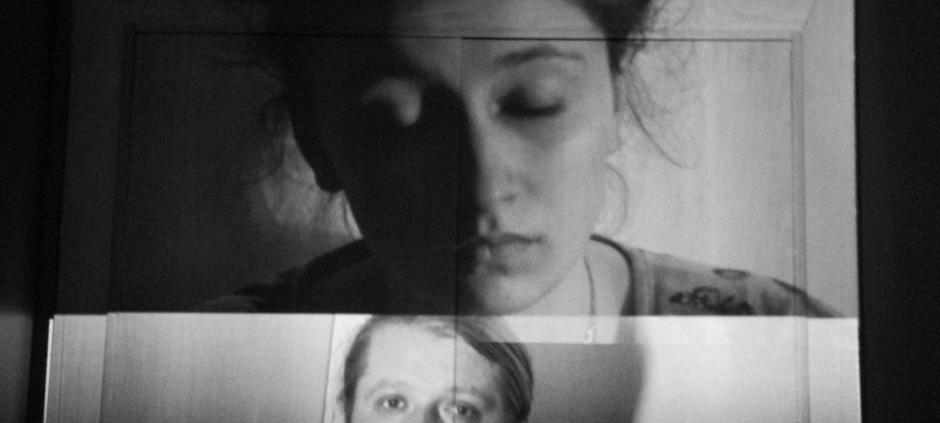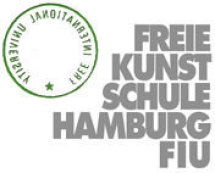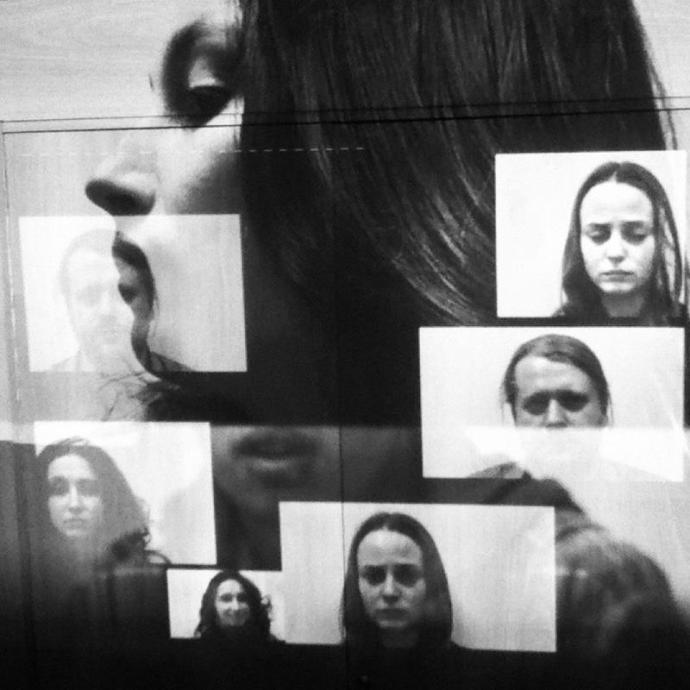Project by Georg Genoux based on the diaries of Anne Frank, the letters of Helga Goebbels and the own family history.
Organizers: Joseph Beuys Theater, Andrei Sakharov Museum, Goethe Institut Moskau.
Anne Frank, Helga Goebbels Tale Told Together
By John Freedman
The Moscow Times. March 17th 2011
Over the last decade, Georg Genoux has quietly gone about creating a space in the Moscow theatrical territory that belongs exclusively to him.
A German citizen who studied directing under Mark Zakharov in Moscow, he remained in Russia and became an active player in the new drama movement at the Playwright and Director Center and Teatr.doc. In 2007 he founded his own theater, the Joseph Beuys Theater, dedicated to the memory of a provocative German artist.
At all of these venues Genoux has staged politically daring and socially engaged plays by playwrights Yury Klavdiyev and Bertolt Brecht and has created interactive works such as “Democracy.doc” and “Society of Anonymous Artists.” He has worked with success in Saratov and Voronezh.
He often seeks in subtle ways to bridge the gap between the societies of Germany and Russia, both forever bound uneasily by the mayhem of dictatorial pasts.
Genoux’s latest Moscow production is “Anne and Helga: I’ll Say Goodbye Just in Case,” a purposefully, I would say aggressively, understated look at two young women’s lives that were criminally cut short.
Anne is Anne Frank, the Jewish girl who hid from the Gestapo in Holland during World War II before being transported to the camps where she died. Helga is the daughter of Joseph Goebbels, Hitler’s minister of propaganda, who perished in Hitler’s bunker at the end of the war, poisoned by her own parents.
Both young women died with their aspirations for the future still blossoming in their hearts.
The stories are gruesome. Grown men and women playing at power politics in a way that sends tens of millions of people to their death. Among them were two teenage girls in love with boys their age and buffeted by the usual love-hate relationship kids have with parents.
Both lived out their last days in cramped spaces where, the more they sensed a tragic end coming, the more they gave themselves over to hope for the future. Anne jotted her thoughts in a diary, which she addressed to an imaginary friend. Helga wrote letters to her boyfriend.
One can imagine a director taking on this topic and pushing hard on the emote button. In fact, it is hard to imagine avoiding that.
Genoux, however, turned in a remarkably low-key, dry-eyed production. This show is so simple and matter-of-fact that someone might complain it avoids confronting the horror of the story.
In fact, what Genoux attempted was to wipe clean the slate of historical reference in order to make the tale reach us here and now.
It’s true that a disembodied voice speaking in total darkness gives us some of the basic facts of Anne’s and Helga’s lives and deaths. But the performances themselves — Margarita Kutovaya as Anne, and Anastasia Pronina as Helga — are supremely contemporary in their hip understatement and nonchalance.
In Genoux’s version, Anne keeps a video diary — she sets up a camera and speaks to it throughout her monologue. Both women are dressed in jeans and fashionably casual tops. Their carriage, diction and intonations are straight out of young Moscow 2011.
In the set by Emil Kapelyush, dozens of video cords are draped over closet handles, very much a sign of the modern world.
The performance space crams thirty spectators into a dinky area behind a closed door next to a stairwell. The actresses barely have room to turn around.
Arguably, this was Genoux’s most theatrical choice — putting his audience in the equivalent of a locked box. It creates the sense of claustrophobia that, in some small, distant measure, may approximate what Anne and Helga experienced.
Other than that he turned the telling of the tale over to the actresses, making no attempt to intertwine the girls’ experience. It is up to the audience to draw whatever parallels it will.
Working from texts shaped by Genoux and Nina Belenitskaya, we first hear Anne’s narrative and then Helga’s. At least here, Anne is the more humorous, playful and emotional of the two. Helga is smart, probing and perceptive.
Both suspect the world is coming to an end. Both were right.
Genoux’s “Anne and Helga” is light, brief — and maddening. The director’s refusal to appeal openly to our sense of indignation has powerful results. The story of two young women’s wasted lives lingers because it very much looks like something that somewhere might be happening again.




